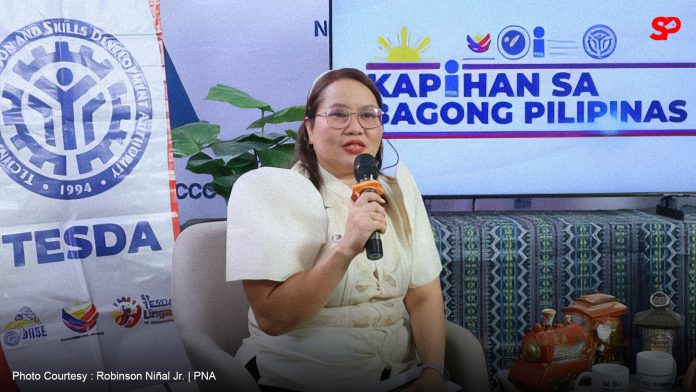By Sam Ramos
A total of 81,668 individuals in the Davao Region have benefited from scholarship programs provided by the Technical Education and Skills Development Authority (TESDA-11) since the start of President Ferdinand R. Marcos Jr.’s administration. These programs aim to make technical education accessible to disadvantaged sectors of society.
Speaking at the Kapihan sa Bagong Pilipinas forum on Tuesday, Melanie Domingo, administrator of TESDA’s Wangan National Agricultural School, highlighted the significant impact of the scholarship initiatives. She noted that the programs offer financial support to help underprivileged individuals acquire skills training for better employment opportunities.
Among the beneficiaries, 29,450 were enrolled in the Training for Work Scholarship Program, while 18,489 took advantage of the Universal Access to Quality Tertiary Education Act. Another 12,703 individuals were part of the Special Training for Employment Program, and 9,955 participated in the Tulong Trabaho Scholarship Program. The Rice Extension Services Program supported 7,171 scholars, the Coconut Farmers Scholarship Program aided 1,911, the Private Education Student Financial Assistance program helped 1,309, and the Tsuper Iskolar program benefited 680.
Domingo also highlighted TESDA-11’s steady growth in skills training participation, with the number of enrollees increasing from 63,737 in 2022 to 82,665 in 2023, and reaching 83,146 as of December 10, 2024. She added that the number of graduates has consistently risen, reflecting the success of the training programs.
To meet the growing demand for technical education in the region, TESDA-11 has expanded its registered Technical and Vocational Education and Training programs. The number of registered programs grew from 56 in 2022 to 277 in 2023, before adjusting to 222 in 2024.
Domingo emphasized the critical role of partnerships in ensuring the success of TESDA’s initiatives. From 2022 to 2024, TESDA-11 established 545 collaborations with industries, local government units, and academic institutions, creating a robust network to support the scholarship programs and skills training efforts.

